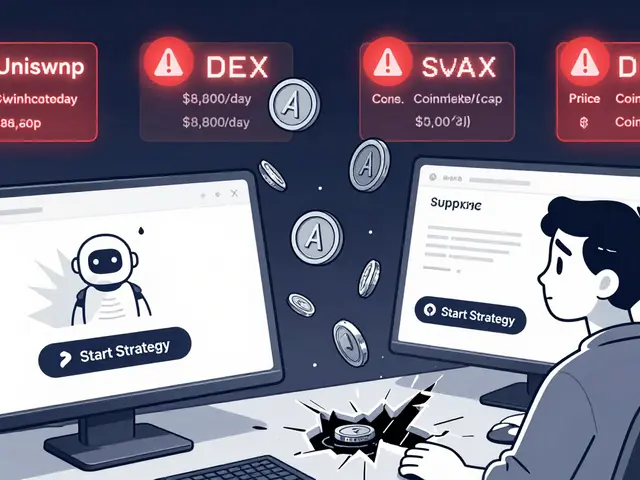Unregulated Crypto Broker: Risks, Regulation, and What to Watch
When navigating unregulated crypto broker, a platform that lets you trade digital assets without any official license or supervision. Also called illicit broker, it typically operates outside regulation, exposing users to higher investment risk and limited consumer protection.
Legitimate crypto exchange, a service that matches buyers and sellers under a regulatory framework offers transparent fee structures, KYC checks, and audit trails that many unregulated brokers skip. Comparing the two helps you spot red flags such as missing registration numbers, vague terms of service, or promises of guaranteed returns.
Key Factors to Evaluate
First, check whether the platform is registered with a financial authority. Registration signals that the broker follows regulation standards, which usually include anti‑money‑laundering (AML) procedures and capital requirements. Without this, the broker can disappear with user funds at any time.
Second, look at the fee model. Unregulated brokers often hide costs in spread markup or conversion fees, making it hard to calculate true trading expenses. A regulated crypto exchange lists fees openly and provides transaction receipts for every trade.
Third, assess the security measures. Reputable exchanges employ cold‑storage wallets, multi‑factor authentication, and regular security audits. In contrast, many unregulated brokers store assets in hot wallets that are vulnerable to hacks, increasing the overall investment risk.
Fourth, verify the availability of customer support. Regulated entities must maintain a support channel that can address disputes, whereas illicit brokers often disappear after a complaint, leaving users without recourse.
Finally, consider the legal recourse. If a broker operates under a recognized jurisdiction, you can file complaints with consumer protection agencies or pursue legal action. Without jurisdiction, you have little chance of recovery.
These points form a practical checklist that separates legitimate crypto exchange services from risky unregulated brokers. By applying this framework, you can reduce exposure and make more informed trading decisions.
Below you’ll find a curated collection of articles that dive deeper into specific brokers, regulatory updates, and strategies for protecting your assets. Use them as a toolbox to navigate the crypto landscape safely.
A detailed LYOTRADE crypto exchange review covering its unregulated status, technical flaws, security risks, and why better alternatives like Binance, Coinbase, or Bybit are recommended.



 Finance
Finance




